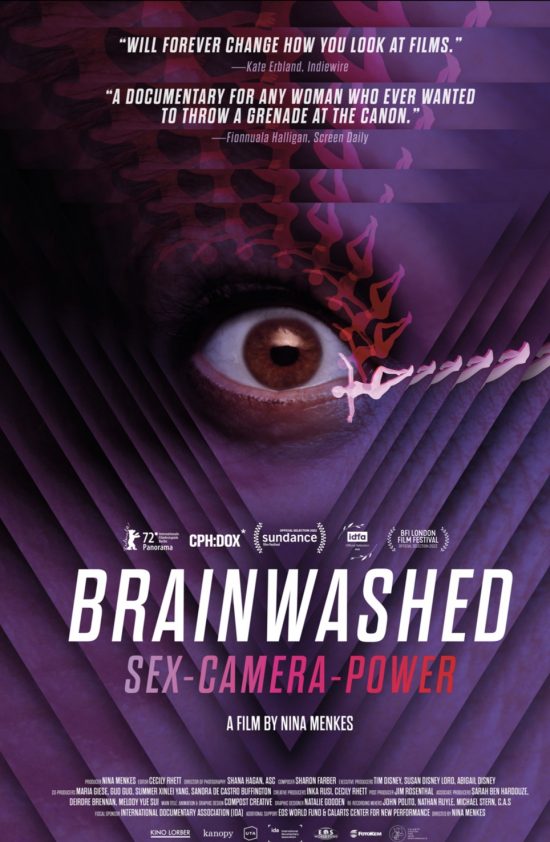Review – Brainwashed: Sex-Camera-Power – “You’ll find this film class riveting”
Lyrics from the wise Janelle Monáe’s song ‘Screwed’ once said “Everything is sex, except sex, which is power,” and this is a central theme in director Nina Menkes’ newest documentary which aims to target the objectification of women and how it influences our culture. Brainwashed: Sex-Camera-Power starts with her voiceover, “I found myself drowning in a powerful vortex of visual language that is difficult to escape,” and soon you’ll feel the same way.
Based on her talk “The Visual Language of Cinema,” Menkes uses the documentary version to interview a mix of film academics and those in the industry, like Julie Dash, Catherine Hardwicke and Rosanna Arquette in order to expose the tremendous impact of the male gaze in film. From 1927’s Metropolis, to Hitchcock’s Rear Window and through to present-day films such as the Avengers movies and Once Upon A Time In Hollywood, Menkes provides endless examples of patriarchal influence and how it has perpetuated objectification of the female form. This spills over into our real-life world. As one interviewee mentions “If the camera is predatory, the culture is predatory.”
Brainwashed plays as a film school lecture with Menkes our professor, our introduction to realizing that the images we’ve been watching our entire lives have shaped not only how we might think about ourselves and our self-worth but also, as women, how we feel about our bodies. These images have contributed to a world where women are devalued, where sexual assault is glamourized, where there is a general disregard for women’s rights.
As Menkes explains, shot design has a lot to do with how we see women from framing and point of view to different lighting. It all pushes women into a specific narrative position, one that exemplifies the power dynamic between the sexes. The problem is, that these images are so prevalent they’re almost like air, we don’t even notice they’re all around us anymore. The use of these tropes are deliberate decisions, even if they’re influenced by the continually inundated subconscious, meaning that male filmmakers aren’t the only ones to blame here (even if they’re MUCH more prevalent). Yet so many of the films we watch, ones that win Oscars and are touted as masterpieces, only perpetuate the objectification of women.
This can also lead to the same behaviour behind the camera, with a staggering 94% of women in Hollywood experiencing sexual harassment or assault. Once you see Menkes’ examples of how consent is disregarded on screen, how men are often depicted continuing to convince their female scene partners to have sex long after they say no, you’ll find it no surprise that cinema seems to have a link to rape culture. It shows boys from a young age that their gaze is the most important, that they can have what they want.
In its content, Brainwashed is nothing if not compelling, and as a woman, it made me angry to realize how many of my insecurities have likely, unknowingly, been shaped by some of the movies I love. As a film however, Brainwashed is a glamorized Ted-Talk, not terribly cinematic even if Menkes is a relatively dynamic presenter. Yet, if you’re interested in the construction of film, in its history and how we can change its future, essentially for the betterment of our culture, you’ll find this film class riveting. One thing is true, you’ll never look at movies the same way again.
Brainwashed: Sex-Camera-Power played at the Sundance Film Festival as well as BFI London Film Festival. It currently has screenings in New York and Los Angeles with further rollout to follow.












